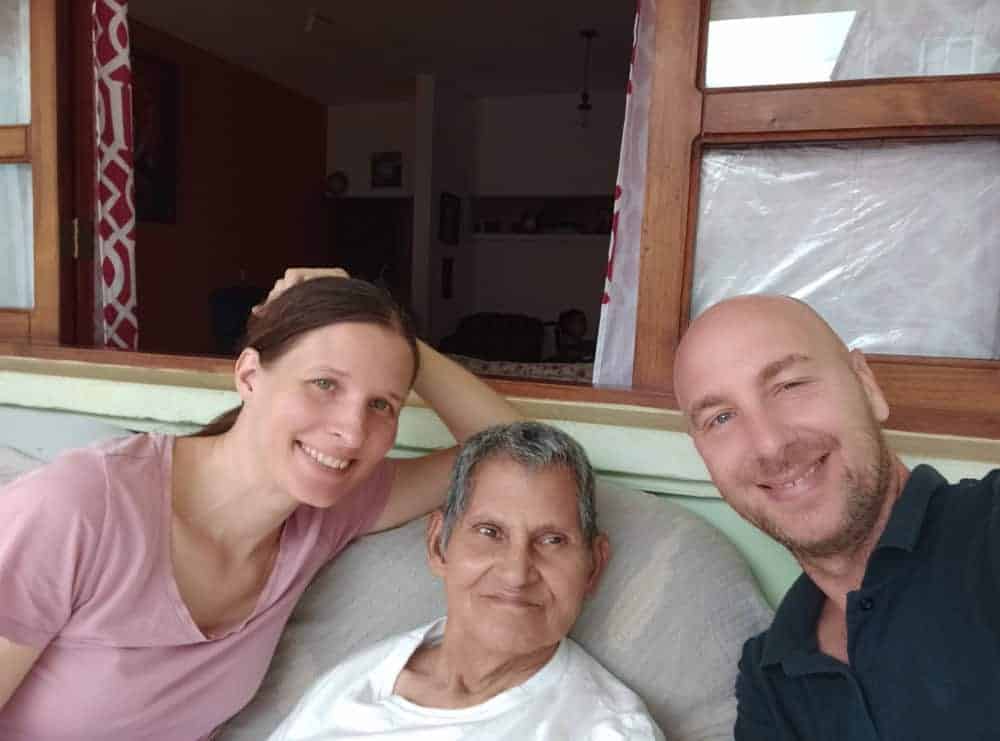From Cascavel, we departed for Asuncion, the capital of Paraguay. We traveled by bus, as usual. The only difference was that we traveled by day and not by night.
To Paraguay
Traveling by day is nice, since you can observe the landscape and get your first impression about the country.
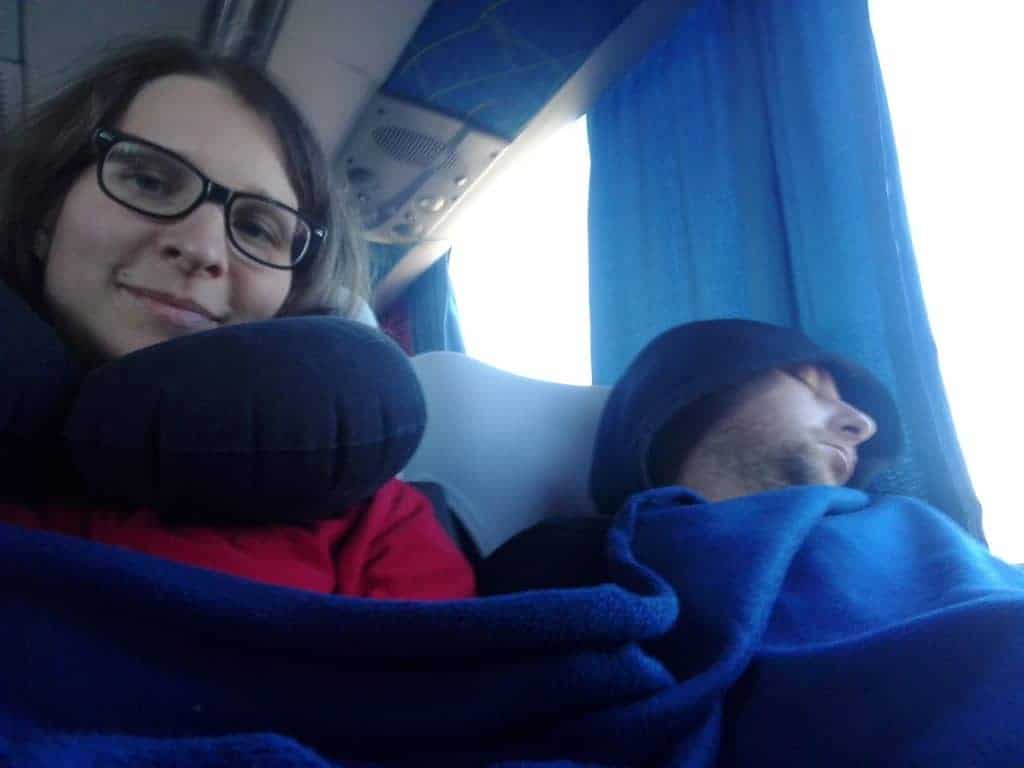
Because I slept throughout the journey, Silva told me about her first impression only after we arrived – vast and hilly landscape, huge farmlands and modest single-story houses, which were usually painted green (God knows why).
We knew this was one of the poorest and most corrupt countries in South America. It’s a land with difficult and painful past, which will be the topic of my next article.
The Organizer
Unlike our previous trips, we had absolutely no idea at exactly which location we would arrive, who would receive us there or what Asuncion would have in store for us.
It’s what happens when someone else organizes your trip. You know Paulo by now – the person who was our host for a few days and who linked us up with missionary Diego in Cascavel so we could visit the indigenous people, and even made arrangements for us to stay with Luiz, Marlene and Dandara – the lovely family that lives close to the city center.
Worry and Stress Free
But Paulo went one step further. He called his friend in Paraguay, Fr. Jurandir of Augustinian missionary order, and made arrangements in our name. All we did was follow instructions, which was not something we’re used to.
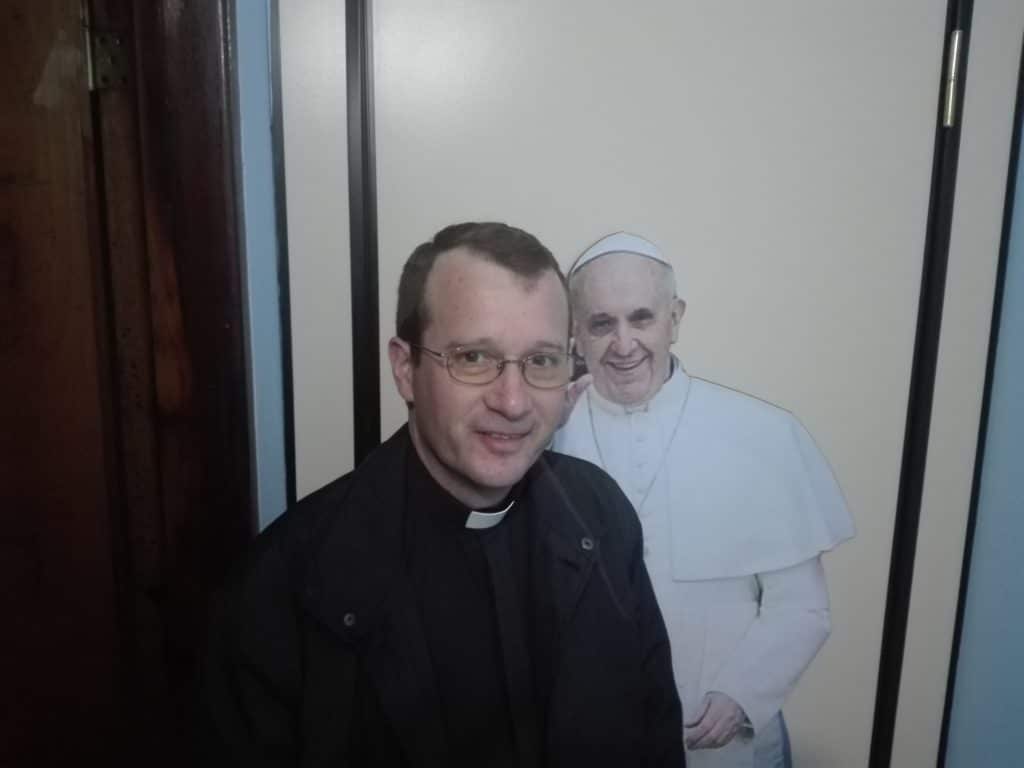
As you can imagine, there are advantages to such an arrangement. Having someone else organize your trip reduces stress and worrying, and also saves your time and energy.
…Without Supervision
But there are also disadvantages. Since we weren’t “in the loop”, we weren’t exactly sure to what extent the missionaries were familiar with our work and purpose, which led us there in the first place.
Usually, we inform people well before our arrival, so the community can prepare and adjust to two new “temporary members”.
Soon after arriving at the bus station, we realized that “the loop” was lacking some information.
Going Separate Ways
We were greeted by Fr. Silvester, one of three Augustinian missionaries. We identified him by his black habit. He was quiet and reserved, but friendly and very benevolent. When he asked on our way to the car if we were traveling as tourists, we knew there were some things Paulo forgot to mention.
The second surprise came when Silvester stopped his car at a house near the mission and said that Silva would be staying there, with the catechist’s family, while I had a room ready in the cloister.
We were a little surprised, but we agreed to being separated. To be honest, the nine-hour drive left us so exhausted that all we wanted was to get some sleep – we’d figure out the rest later.
Who Are These Two?
From left to right: Fr. Cleber, Fr. Jurandir and Fr. Silvester – Brazilian missionaries working in Paraguay.
Silva dined with her host family, while I dined with missionaries. I met two other friars – Fr. Cleber and Fr. Jurandir – the superiors, with whom Paulo made arrangements.

It soon became obvious that the missionaries had no idea who we were, what our mission was, nor that we were married.
When I explained that this was the third year that my wife and I have been traveling around the world visiting the missions and communities, writing about it and encouraging our readers to make donations to help the poorest, Fr. Jurandir was completely confused while Fr. Silvester’s face kept changing colors.
Jurandir thought we were tourists traveling through South America, who needed accommodation for a few days, and Fr. Silvester had no idea Silva and I were married and was embarrassed for separating us.
Sometimes it’s quite alright…
Silva arrived at the community after dinner. We were separated for only a couple of hours, but it felt like at least a month. It’s like this when you’ve been traveling for three years (24 h/day) with a person you love.
Silvester kept apologizing and calmed down only after we said that it’s sometimes nice having some time for yourself, even if you’re married.
Parish Party
That night, we slept in separate houses, but we spent the evening together. On that day, friars organized a big party on anniversary of the renovation of local primary school, which they took over from the diocese upon their arrival to Paraguay. I’ll write more about the school in one of my next articles, as well.
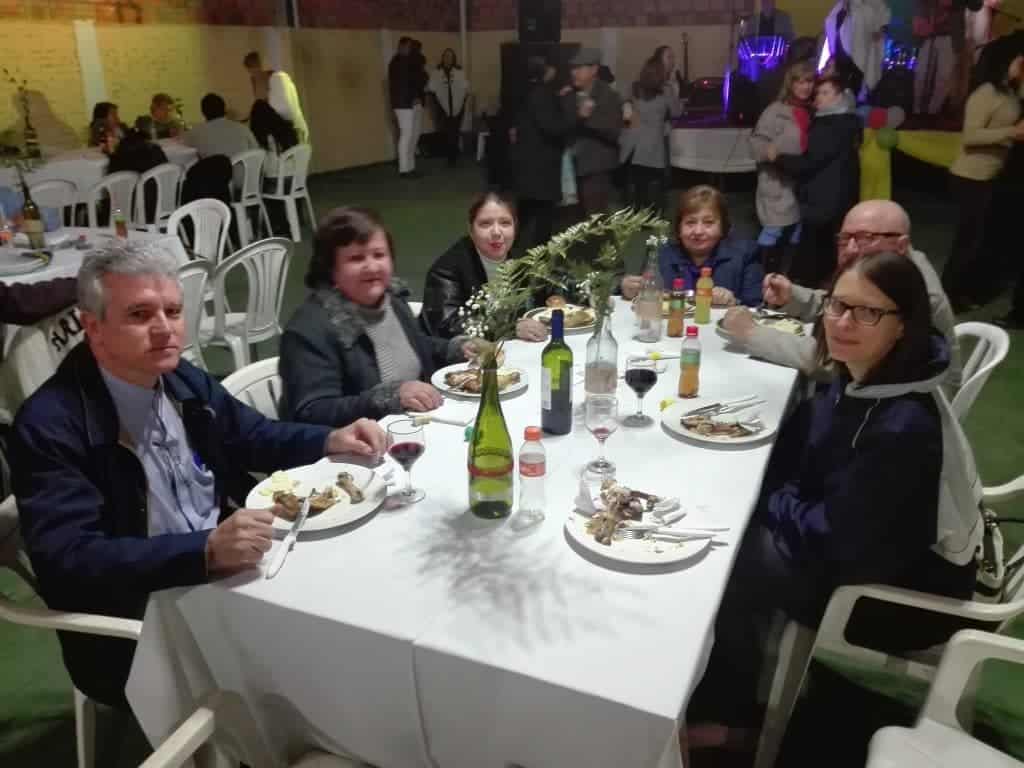
Parish celebrations are similar to those in Brazil. Parishes here have large covered yards for celebrations and events, as well. Such gatherings are important both for parishioners and missionaries, since it’s an opportunity to raise money for projects, construction or helping people in need.
This time, they were raising money to construct a fence around the school and build a roof for the future gym.
Cowboy on Stage
Friar Jurandir, now better informed about our intentions, sat at us his table near the dance floor and the stage. Live music made our conversation a bit difficult, but the performers were excellent.
The place became filled with shouts, whistles and excitement when the band consisting of drummers, guitarists, back vocalists and a very conspicuous frontman entered the stage
The singer greeted the audience, cried out loud in Spanish and got loud applause every time. He was wearing boots, jeans, country jacket and a cowboy hat. He was tall and strong – you couldn’t miss him if you tried.
Fr. Cleber?
“Hold on, Nace!” shouted Silva when the Christian band started rocking out. “Isn’t that one of our friars?”

If course it was. Fr. Cleber, a thirty-six-year-old Augustinian, stood there and sang as if the stage had always been his. He was excellent and very impressive. The dance floor was full, the rhythms of samba had almost the entire parish dancing – even us, even though we were completely exhausted.
Financial Challenges
The party was a success and the charity proceeds (just over €1,000) were above expectations, according to Fr. Jurandir.
The next day, when Silva was able to move to my small monastery room, we asked the superior about the purpose for which the Slovenians could contribute to their mission.

Jurandir frankly told us that since coming here, they’ve faced great financial challenges.
The diocese entrusted them with an old and poorly managed school, which the missionaries were able to renovate with the help of donors and volunteers to the extent that it can now receive 130 children from impoverished nearby settlements.
Parents pay only a small amount (around €20) so that missionaries can pay for teachers and other expenses, but many parents can’t even afford that. In those cases, friars pay from their own pockets.
Impoverished Family
“And there is something else that keeps
However, the wife was fired because she gave birth and the company thought she would no longer be effective in carrying out her tasks (she worked the night shifts). They fired her without severance pay.”
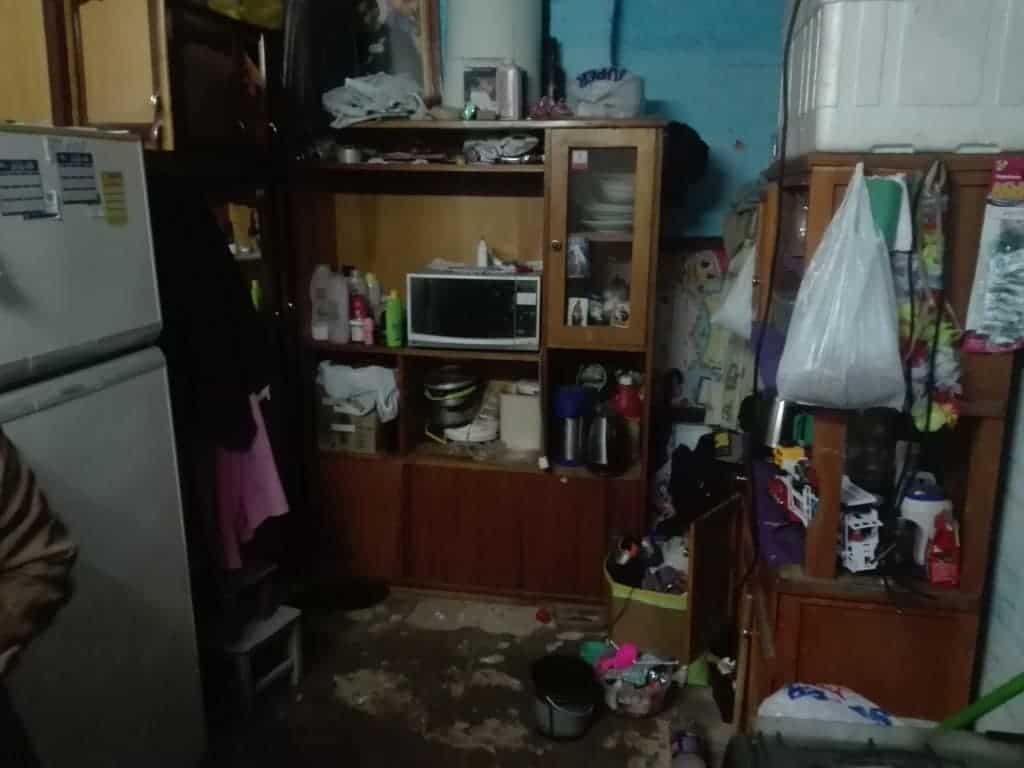
There are many similar stories in Paraguay. The legislation should protect the workers in such cases, however its existence is one thing, while implementing and sanctioning in accordance with the legislation is something completely different.
In short, the young mum Laura and her kids came to Asuncion at the invitation of her friend and settled in the disintegrating school extension, where in exchange she helps with different school activities. Eventually, her husband Juan also left a good job in a town a few hours away and moved to be with his family.
Laura and Juan, both highly educated and once with good jobs now live in poverty. In the photo with Fr. Jurandir.
Near the school he found work in a company that distributes barbecue charcoal. This highly educated man with a professor’s education spends 12 hours each day filling bags of charcoal so his family can survive. He receives a minimum wage (€285), which is very little even in Paraguay.
“When we took over the school, this apartment was in an even worse state than it is now. We managed to temporarily patch up the roof in order to stop the leakages, but we are always looking for donors to renovate this family’s apartment and expand
